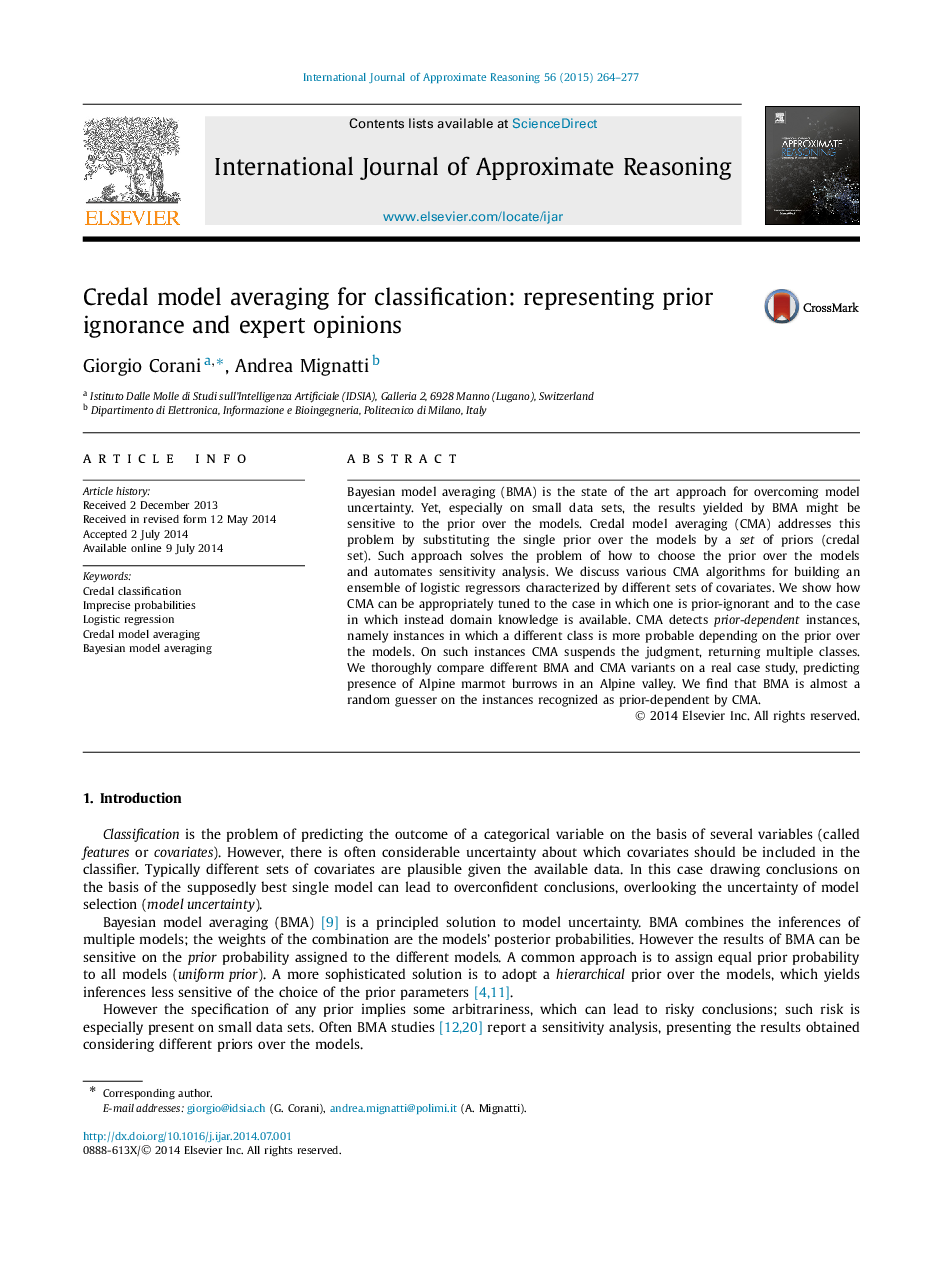| کد مقاله | کد نشریه | سال انتشار | مقاله انگلیسی | نسخه تمام متن |
|---|---|---|---|---|
| 397305 | 1438448 | 2015 | 14 صفحه PDF | دانلود رایگان |

• Credal model averaging (CMA) extends Bayesian model averaging (BMA) to imprecise probabilities.
• CMA substitutes the single prior over the models by a credal set.
• CMA automates sensitivity analysis with respect to the prior over the models.
• CMA detects prior-dependent instances, over which BMA predictions are unreliable.
• We applied CMA to the prediction of presence of marmot in an Alpine valley.
Bayesian model averaging (BMA) is the state of the art approach for overcoming model uncertainty. Yet, especially on small data sets, the results yielded by BMA might be sensitive to the prior over the models. Credal model averaging (CMA) addresses this problem by substituting the single prior over the models by a set of priors (credal set). Such approach solves the problem of how to choose the prior over the models and automates sensitivity analysis. We discuss various CMA algorithms for building an ensemble of logistic regressors characterized by different sets of covariates. We show how CMA can be appropriately tuned to the case in which one is prior-ignorant and to the case in which instead domain knowledge is available. CMA detects prior-dependent instances, namely instances in which a different class is more probable depending on the prior over the models. On such instances CMA suspends the judgment, returning multiple classes. We thoroughly compare different BMA and CMA variants on a real case study, predicting presence of Alpine marmot burrows in an Alpine valley. We find that BMA is almost a random guesser on the instances recognized as prior-dependent by CMA.
Journal: International Journal of Approximate Reasoning - Volume 56, Part B, January 2015, Pages 264–277